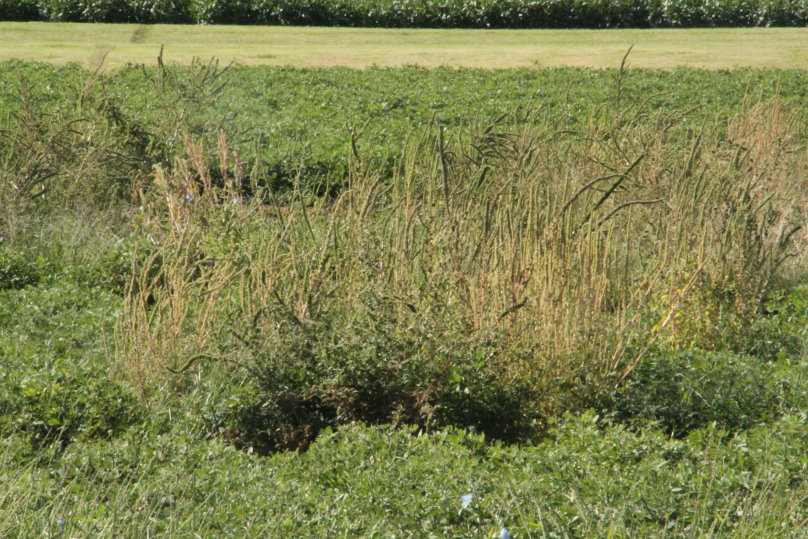
Agricultural News
Weed Science Society Endorses Strategies to Reduce the Threat of Herbicide Resistance
Mon, 30 Apr 2012 11:17:15 CDT

The Weed Science Society of America (WSSA) announced that its board has endorsed a series of best management practices designed to reduce the incidence of herbicide-resistant weeds and the threat they pose to agricultural productivity. Chief among them are recommendations that growers diversify their weed management practices and the types of herbicides they use.
"Today it is common to rely on repeated use of a single class of herbicides," says Rod Lym, WSSA president. "It is clear we need a different approach if we want to protect the future effectiveness of these products, which are important tools for famers."
WSSA plans to present its recommendations during a May 10 scientific summit on herbicide resistance organized by the National Research Council, the operating arm of the National Academy of Sciences. The event will be held at George Washington University in Washington, D.C.
WSSA scientists say the single most important factor contributing to resistance is overreliance on a single herbicide - or group of herbicides - with the same mechanism of action. Weeds most often develop resistance in response to such repeated and exclusive exposure, which renders the herbicide ineffective over time.
The best management practices recommended by WSSA to combat herbicide resistance include common-sense, diversified approaches to weed management - from proactive steps to reduce the number of weed seeds in the soil to the use of well-established cultural practices to suppress weeds through crop competition.
The WSSA's report says there are barriers to widespread adoption of best practices, especially when the associated costs are considered. A short-term focus on less expensive approaches to weed control tends to prevail over concerns for the future economic toll of herbicide-resistant weeds.
"Many in agriculture are in denial," Lym says. "They seem convinced they can ignore the threat of resistance and wait for new herbicides to come along and solve the problem. Yet the discovery of new herbicide chemistries is very rare. A solutions-based approach that incorporates all the tools at hand is essential."
WSSA Recommendations for Other Key Stakeholders
In addition to best practices for growers, the WSSA report also recommends important steps that other key stakeholders should take to address the increasingly urgent problem of herbicide resistance. Examples include:
--Requiring that product labels show each herbicide's mechanism of action - helping growers more readily identify suitable products for a diversified weed management program.
--Developing government and industry incentives to encourage adoption of best practices.
--Using federal, state and industry funding to support education programs and to pursue research that will help everyone learn more about resistance.
"Herbicides are critical to the sustainability of agriculture and to the security of our food, feed, fiber and energy," Lym says. "It is time for us to treat them as the scarce resources they are. Using herbicides in an appropriate way as part of an integrated weed management program can mitigate resistance and preserve herbicide effectiveness for future generations."
The WSSA's recommendations and full report, including supporting scientific references, are accessible by clicking here. The U.S. Department of Agriculture's Animal and Plant Health Inspection Service (APHIS) supported the development of the document.
WebReadyTM Powered by WireReady® NSI
Top Agricultural News
More Headlines...



















